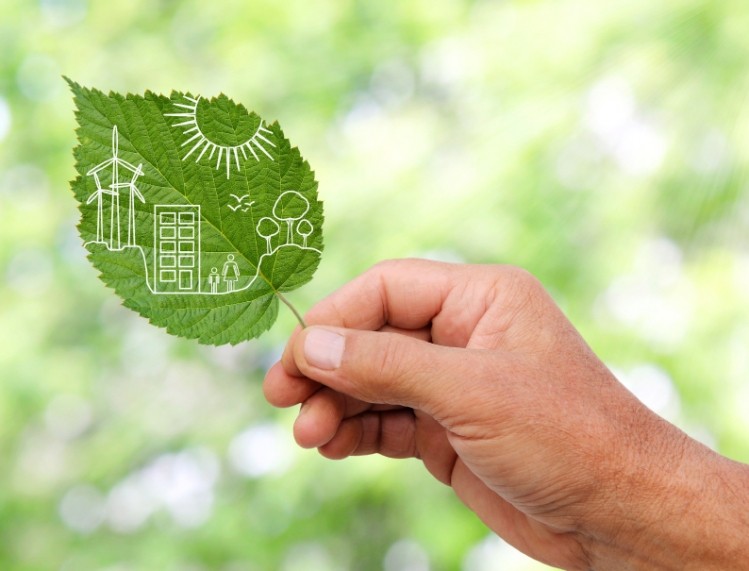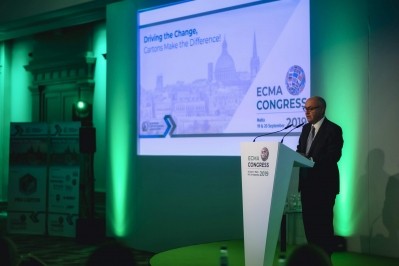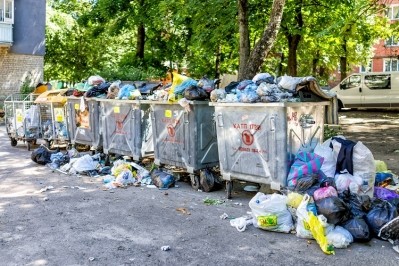Sustainable brands must embrace ‘net positive’: Euromonitor

A growing number of consumers expect the food industry to deliver on the sustainability agenda. And they are voting with their feet. According to Euromonitor International’s Lifestyles Survey 2019, 54% of consumers believe they can make a difference in the world through their purchases.
More engaged and well-informed shoppers are increasingly basing their purchasing decisions on what impact a brand has. Vocal NGOs are effective proponents of social and environmental causes, and investors are looking at the risks associated with a poor environmental record when evaluating investment decisions. And while regulatory requirements lag, the potential for stricter environmental legislation is also front-of-mind.
“Investors are moving away from short-term profit and injecting capital into more sustainable companies. The reason is clear. Smarter and more resilient businesses are less likely to be affected by price volatility and potential disruptions in supply chains and / or new regulations that could come into place to protect the planet, secure resources and avoid international conflicts,” Euromonitor analyst Maria Coronando Robles noted.
There is also a clear business case for developing more sustainable supply chains, according to Euromonitor. From resilience to shocks in the commodities cycle to driving profitability by reducing waste and unlocking growth opportunities, the case for sustainable innovation is clear.
“Brands need to adapt to evolving sustainability trends, not only to protect their reputation, comply with legislation and achieve economic profit, but also to capitalise on new opportunities and increase long-term resilience and success,” Robles said.
But what does this look like in practice?
Net positive impact
Some subjects are more topical than others. For instance, Euromonitor’s Lifestyle Survey found 61% of consumers are concerned about climate change, putting progress on moving operations to a carbon neutral status high up the agenda.
But as more businesses integrate sustainability into their business models, Euromonitor's How to Become a Sustainable Brand report suggests a strong CSR platform is evolving from a competitive advantage to a hygiene issue – a prerequisite for success.
Brands today are expected to make wide-ranging progress across a variety of topics, proving their value to consumers though the values they embody and the positive impact they have on the world, according to Robles.
“The days a brand could address its negative impacts in one area by compensating for them with positive impacts in other areas have come to an end. Today’s sustainability leaders are embracing 'net-positive' business models, which are built on the idea of having an overall positive impact on the society, the environment and the global economy.”
In practice, Robles outlined various areas that will help brands live up to these lofty expectations. Firstly, she said food brands need to embrace a collaborative approach, forming partnerships for ‘shared value creation’.
This also links to the development of circular economy models, which is ‘increasingly resonating in sustainability departments of multinational companies as a possible solution for the waste and resources crises’.
Brands must also deliver transparency and traceability across the value chain. “Providing information to the consumer on where the products come from, how the materials were sourced and how the products were manufactured is essential to build green consumers’ loyalty and trust,” she observed.
Food makers urgently need to develop more sustainable packaging solutions with plastic pollution hitting the headlines. This is an important issue that brands can engage with ecologically conscious consumers on, Robles suggested.
“Euromonitor International’s Lifestyle Survey 2019 shows that ‘recyclable’ is the most trusted green label globally, followed by locally sourced, natural eco-friendly and natural.”







